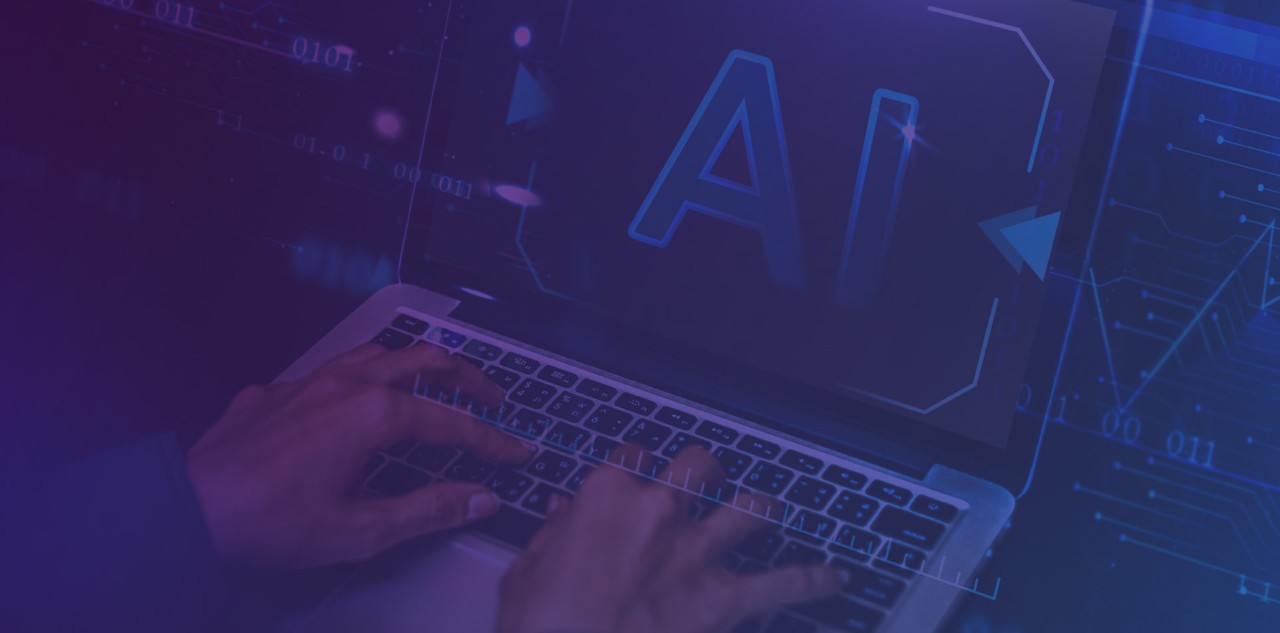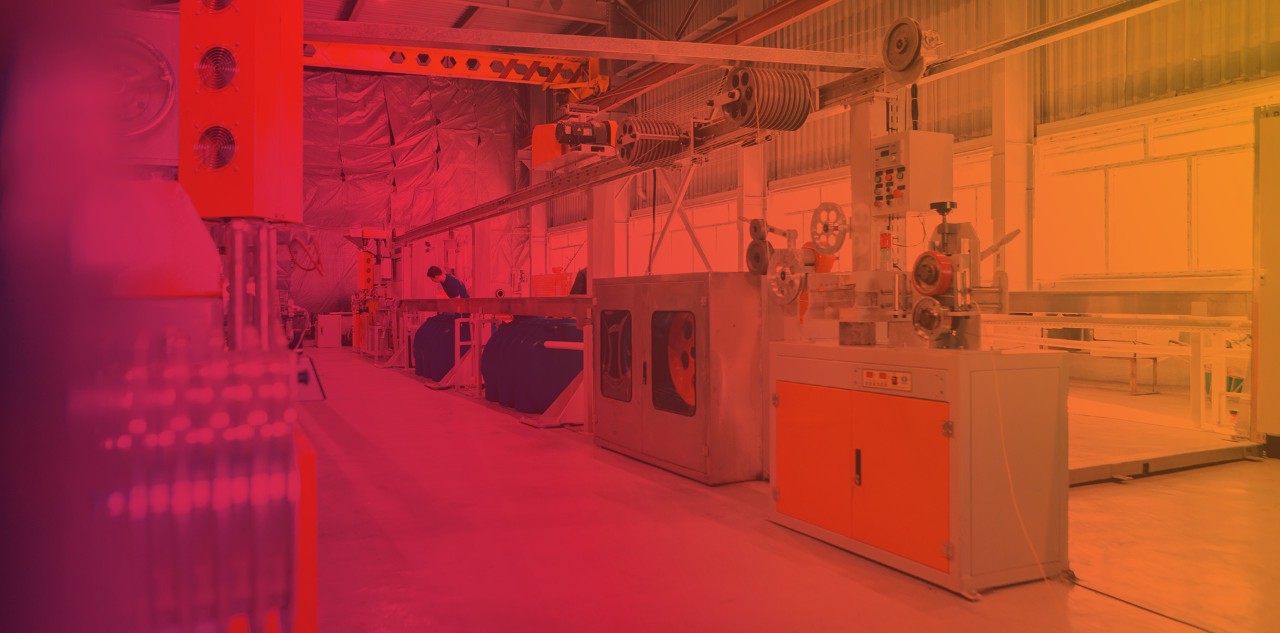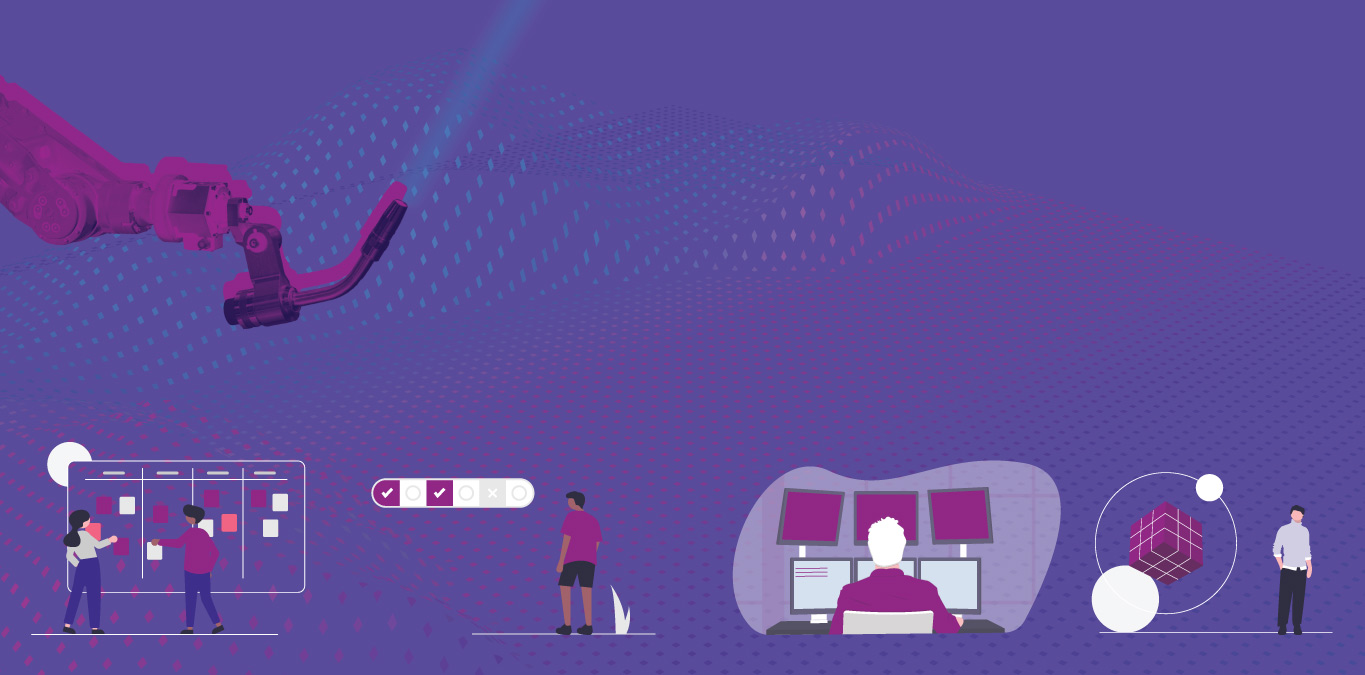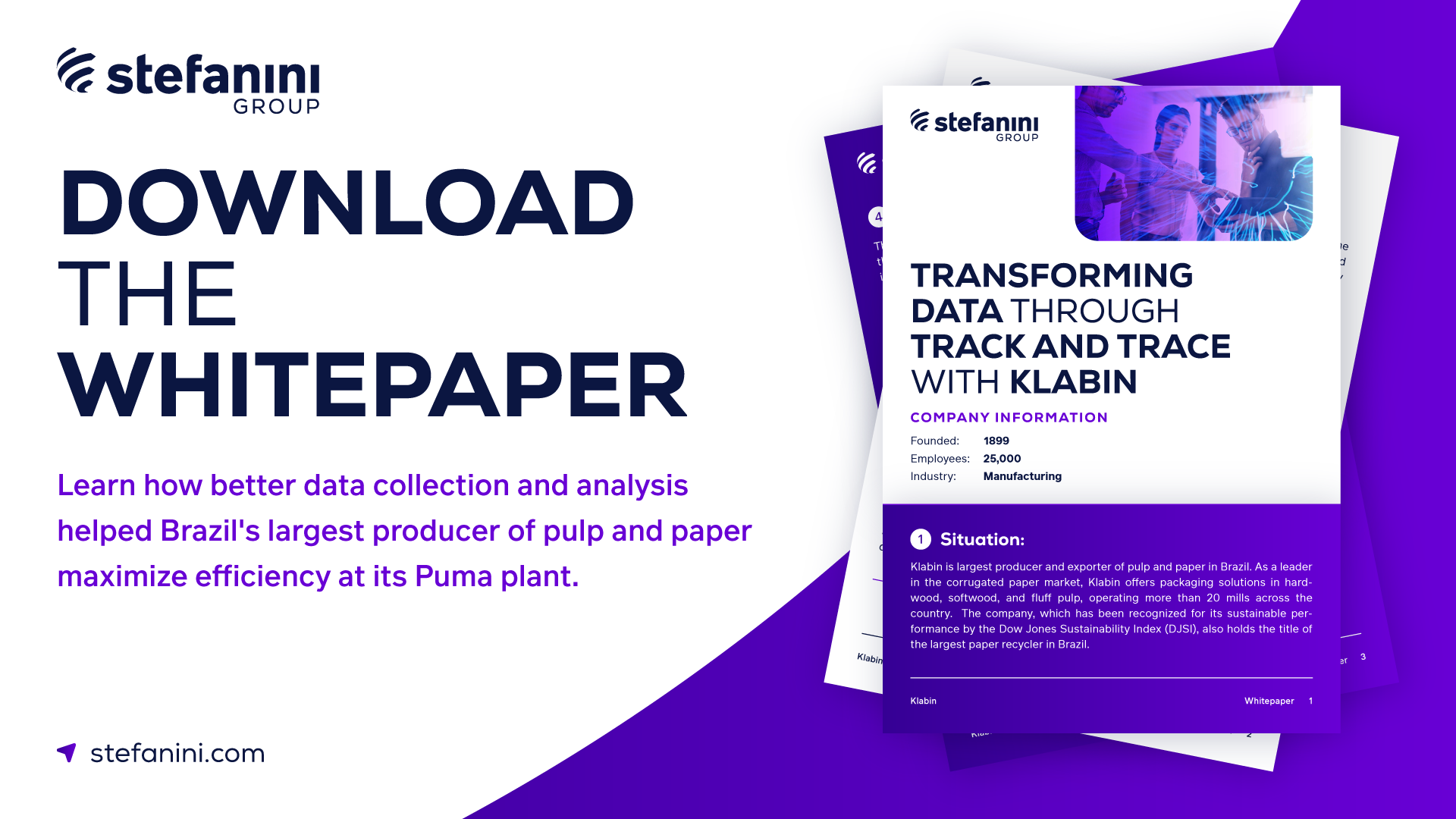The usage of AI in Pharma has been relatively slow; however, unknown to many, it offers immense benefits.
Artificial Intelligence is regarded as one of the leading digital transformation technologies and is evolving faster than ever. We have entered a decade of machine learning and though the whole concept of integrating AI-powered technology seems far-fetched to some, the potential of its benefits is very real. We’re going to elaborate on AI and how it works for those of you who may be unfamiliar with its application in the pharmaceutical industry.
· How Can AI Transform the Pharma Industry?
· The Future of AI for the Pharma Industry
· How Pharma Companies Can Use AI
What Is Artificial Intelligence?
Artificial Intelligence is a field of computer science that is fully concerned with building machines capable of managing tasks that would otherwise require human operators and intelligence. Many popular technologies fall within the rubric of AI, which includes deep learning, machine learning, non-linear grid systems, chatbots, and/or self-modifying graph systems.
Learn how Sophie Is Spearheading Stefanini’s Journey into Artificial Intelligence
How Does it Work?
After breaking Nazi encryption code, Alan Turing transformed the way we use technology by asking a question “Can Machines Think?” Now, from self-driving cars to using AI-based Google searches, facial recognition, and virtual assistants, Artificial Intelligence has transformed many industries. Simply put, AI can be programmed to undertake a number of functions and the type of programming is what determines inevitable capabilities. The question is, how can it impact the pharmaceutical industry?
How Can AI Transform the Pharma Industry?
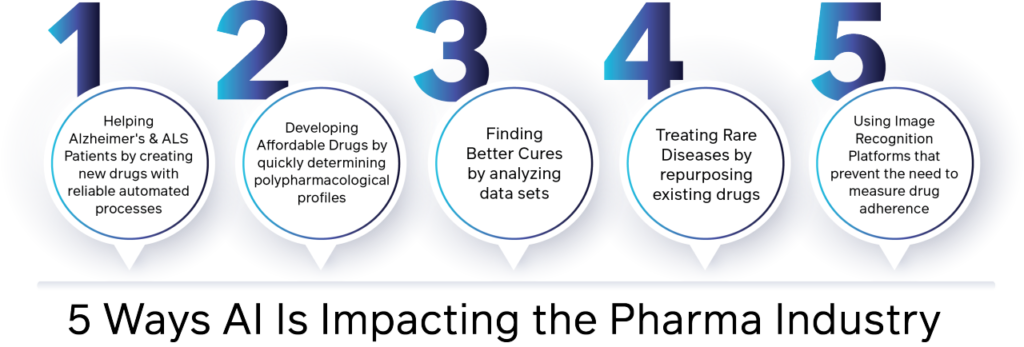
Using AI-powered tactics in the Pharma industry means using automated algorithms to handle tedious tasks performed by humans. Artificial Intelligence has streamlined and impacted the pharmaceutical industry in many ways, ranging from creating new and better drugs to combatting fast-growing diseases.
This is a detailed guide so that readers understand one of the greatest leaps in the biotech industry. According to sources, more than 70% of business owners believe Artificial Intelligence is crucial, while 11% haven’t even considered using AI in healthcare. We’re now going to explore how artificial intelligence has impacted the pharmaceutical industry.
Helping Alzheimer’s & ALS Patients
As the leading company using AI in Pharma, Verge Genomics created new drugs using reliable automated processes. After leveraging millions of data sets and in-depth analysis, they built exceptional solutions to reduce the risk of Alzheimer’s or ALS. Many of the leading companies don’t use AI in drug discovery and research often fails researchers who are only able to target a single gene at a given time for a given study. Artificial Intelligence on the other hand has helped Verge Genomics to explore hundreds of genes that are responsible for disease sources simultaneously.
“By vertically integrating machine learning and drug development capabilities under one roof, we have been able to identify dozens of promising new therapeutic opportunities for devastating diseases such as ALS and Parkinson’s disease,” said Alice Zhang, CEO and founder of Verge Genomics.
Using AI to Develop Affordable Drugs
A biotech company merged Artificial Intelligence and biophysics to explore drugs in an affordable and faster way. They have built an AI-based network of cloud-based technologies that carefully screen small molecules against responsive repositories to determine polypharmacological profiles. Artificial Intelligence helps the experts to analyze the drug effects and create a compelling visual output of how everything interacts for a deeper and better understanding of biological processes and their outcomes.
Executing AI to Find Better Cures
Many pharmaceutical companies including Novartis use AI-based technology to develop better drug improvements and find faster ways to treat diseases. Novartis is currently using Artificial Intelligence to collect and group body compounds before experts use it for further insights. The research teams at Novartis use perceptive images using machine learning to accurately predict whether or not untested compounds are worth testing. Using computers is far better when it comes to determining a range of data sets to create new drugs.

Leveraging AI to Treat Rare Diseases
Healx is a biotech company that focuses on patient care and works tirelessly to create effective AI-powered platforms. Their Rare Treatment Accelerator is an impressive collaboration that uses the hidden power of Artificial Intelligence and explores better treatments for any rare disease. The company created an AI-powered platform to help scientists enhance production in rare disease discovery. Rather than using Artificial Intelligence to slow down the risk of rare diseases, they focus on analyzing drugs and repurposing them to cure rare diseases.
Using Image Recognition for Drug Adherence
Artificial Intelligence has assisted AiCure to create an image recognition platform that prevents the need to measure drug adherence. They have built an amazing facial recognition software that helps track the effects of various medication when used by patients. According to recent research, using Artificial Intelligence has drastically enhanced adherence in Schizophrenic patients. Clearly, AI-powered techniques can speed up drug development while reducing costs and risks.
The Future of AI for Pharma Industries
While seamlessly using Artificial Intelligence to drive forward drug adherence and discovery, AI has streamlined healthcare procedures. AI is undoubtedly the next big thing for the pharma industry and companies that are flexible enough to adapt AI-based techniques have a strategic advantage. Healthcare experts believe artificial intelligence will be integrated into pharmaceutical companies on a large scale. We’re now going to explore how machine learning can help the pharma industry reduce tedious tasks and focus on important discoveries and challenges.
Research
AI will likely play a big role in streamlining research on new drugs and medication. It is the ability of AI systems to test and simulate thousands of bio-medical situations at a time to help determine which combination of chemicals and substances produces the desired effect. This saves the time it would take active human teams to work through one set of combinations after another manually to find formulas that could offer effective treatment with minimal negative side effects.
Improvement
Apart from developing drugs from scratch, AI will also be heavily integrated into the improvement of existing drugs. Once again, it is the ability of AI systems to simultaneously oversee multiple data sets that makes this a viable solution when it comes to drug development.
High Accuracy in Epidemic Prediction
Use Artificial Intelligence to track and predict epidemic outbreaks using all the latest information ranging from satellite pictures to social information. Whether it is a malaria or Ebola outbreak, using AI-based software can significantly help experts prevent the risk of an epidemic disease. This may help pharma companies develop possible solutions prior to any epidemic/pandemic.
Handling Massive Data
Using AI in clinical operations has made it simpler for healthcare experts to access data for millions of patients and provide seamless treatment. Managing patients’ data is now hassle-free through the use of Artificial Intelligence. Pharmaceutical companies are under immense pressure when it comes to producing accurate data consistently and using AI can solve that. Machine learning has made it simple for pharmaceutical companies to generate and track relevant data, which is then used for research and development processes.
How Pharma Companies Can Use AI
It has become challenging to produce effective pharmaceutical products. To avoid a downward spiral, leading pharmaceutical companies are using data-backed and automated procedures to create new drugs. If you’re someone who is not into AI, and is uncertain about its applications within the pharmaceutical industry, here are some potential applications other than those already mentioned:
- Creating internal expertise and supporting employees with the required resources
- Collaborating with a range of startups using AI in drug discovery
- Partnering with academic bodies that focus on AI research and development, as the pharmaceutical companies are beginning to embrace artificial intelligence
- To avoid financial risk, consider open science projects or various R&D challenges
Wrapping Up
No one can accurately predict to what degree AI-powered techniques can impact the pharmaceutical industry. Though the technology may still be in its early stages and emerging, one can safely say that artificial intelligence is going to transform industries. AI will likely benefit pharma companies that internalize the technology helping them continue to develop cures and treatment options. In short, the application of the same can help companies become more efficient and stay ahead of the competition.









